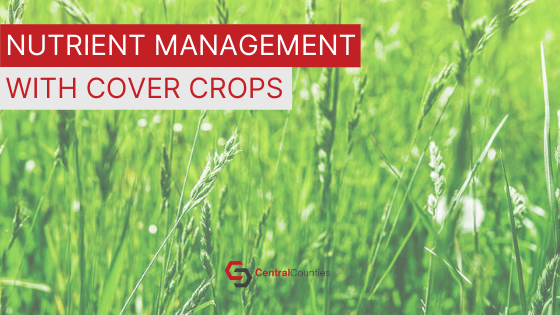Nutrient Management With Cover Crops
Sep 03, 2021

Planting a cover crop for nutrient and erosion benefits can make a lot of sense. However, nutrient management can be tricky. Here are some factors to consider to determine if growing a cover crop is practical for you.
1. You have sugar beets or small grains.
If you have harvested your crop and have open soil in September and October, a cover crop can keep soil from blowing around. That cover crop can also sequester nitrate from nitrogen that’s left in the soil, using that nitrate to increase the cover crop’s biomass and keeping it from leaching into tile lines, drainage ditches, lakes, streams, and rivers. When that cover crop disintegrates the following growing season, it releases nutrients for that year’s crop.
2. You want to seed your cash and cover crops in the same field.
In one of Winfield United's Answer Plot® test plots, they planted corn and then seeded cover crop over top of it on the same day the corn was planted. In the plot next to that, they planted corn without a cover crop. When they soil sampled in August the corn grown along with a cover crop had about 25 pounds of N in the soil while the plot without the cover crop had about 90 pounds of N in the soil.
When the cover crop disintegrates and decomposes it releases nutrients. So you won't get a result from a cover crop until the following year. It is better to wait until later in the season If you want to plant corn and cover crop on the same acres.
3. You want to minimize soil erosion.
The soil following sugar beet harvest is very bare, as opposed to corn harvest. Planting a grass with a fibrous root system instead of a broadleaf with a taproot as a cover crop would be a better management decision. Fibrous root systems are much better at holding soil in place. Planting a grass species as a cover crop can be a good environmental, as well as economic, decision.
Talk with your Central Counties agronomist to find out more about cover crops and if they might be a good addition to your operation and management strategy.